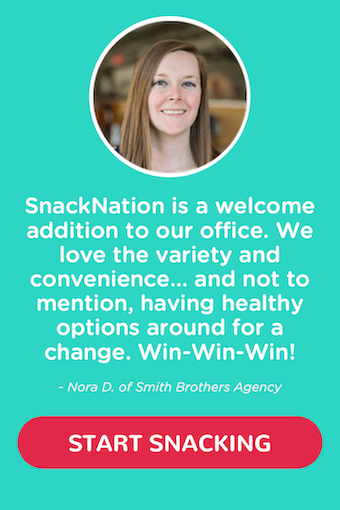Whether you’re a small startup or an established company, having a well-structured and efficient workflow plan can make all the difference.
Regardless of the type of project or project costs that you have, work plans score first when it comes to planning tools.
Work plans help keep everyone on track and accountable and ensure that project tasks and schedules are completed promptly. With customizable options, you can tailor your achievable work plan and set smart goals to fit the unique needs of your business.
Understanding the importance of a comprehensive work plan is crucial for any successful endeavor. A well-crafted plan not only streamlines processes but also anticipates challenges, ensuring that teams are prepared for various scenarios. 
Ready to get started on creating your work plan? Wondering how to create a work plan? This article will guide you through the process and boost your progress by providing the tools you need to succeed in your next project. Calling managers, employers, and HRs to check out these work plan project templates!
What Is A Work Plan?
 A work plan is a comprehensive document that outlines project goals, tasks, and due dates, especially for large projects.
A work plan is a comprehensive document that outlines project goals, tasks, and due dates, especially for large projects.
This project management plan provides a roadmap for effective strategic planning and time management, resource allocation, and informed decision-making.
Managers who utilize a work plan can help track their progress and identify any missed steps that they need to correct. In short, these templates help make sure you don’t miss anything and have crucial tasks slip through the cracks. These templates are designed to provide the assistance you need to ensure your next project is a resounding success!
Benefits Of Setting Up A Work Plan
There are many benefits that you can use to validate your use of a work plan. While we can’t be here all day (there is work to do!) these are a few of the key benefits of utilizing a work plan this year.
Setting up a work plan for your team can help you to:
🚀 Organize and prioritize tasks
Setting up a work plan can help managers identify clear project objectives and which tasks must be completed first. This streamlines workflows and motivates project team members.
🔑 Ensure accountability
By assigning specific tasks to team members and setting clear end dates, a work plan holds everyone accountable for their contributions.
💼 Improve time management
A well-defined work plan helps you focus on key priorities and avoid unnecessary distractions, improving overall efficiency.
🤝 Facilitate communication and collaboration
A shared workflow plan allows for open communication between team members, fostering collaboration and teamwork.
🔍 Identify risks and provide contingency plans
By anticipating potential challenges and including them in your work plan, you can proactively address issues and minimize their impact on the project.
Steps For Creating A Successful Work Plan

Creating a successful work plan involves strategic thinking and clear organization. A well-structured plan can significantly enhance productivity and ensure that goals are met efficiently. Here are seven clear and straightforward steps to create a successful work plan:
👉 Step 1: Define Clear Objectives
Start by establishing what you aim to achieve with your work plan. Objectives should be specific, measurable, achievable, relevant, and time-bound (SMART).
👉 Step 2: Analyze Resources and Constraints
Assess the resources available, including personnel, budget, and tools. Also, identify any limitations or constraints that could impact the plan.
👉 Step 3. Develop a Strategy
Outline the approach you’ll take to achieve your objectives. This should include prioritizing tasks, determining methodologies, and setting milestones.
👉 Step 4. Assign Roles and Responsibilities
Clearly delineate who is responsible for each task. Ensure that team members understand their roles and the expectations placed upon them.
👉 Step 5. Create a Detailed Schedule
Develop a timeline for the plan. Include deadlines for each task and milestone. Ensure that the schedule is realistic and allows for flexibility if needed.
👉 Step 6. Implement Risk Management
Identify potential risks and challenges that could derail the plan. Develop contingency strategies to mitigate these risks.
👉 Step 7. Monitor and Adjust
Regularly review the progress of the work plan. Be prepared to make adjustments as needed to stay on track towards achieving your objectives.
Useful Templates You Can Use To Get Started
Hey! If you are looking for more examples of the best templates to use, check out SnackNation’s Best Work Planning Templates For 2025!
1. Work Plan
✅ Available on: Miro
This template offers a visually appealing and intuitive platform for creating a work plan. It includes sections for setting goals, defining roles and responsibilities, and tracking progress.
It also offers a user-friendly interface with visual elements to help organize and present your work plan. It also allows real-time collaboration with team members, making it a great option for remote teams.
2. Work Plan Tactics
✅ Available on: monday.com
👉 Try This monday.com Template
If you’re overwhelmed by creating a work plan from scratch, fear not! This template offers a variety of customizable templates to choose from. Their user-friendly platform makes it easy for anyone to create a detailed and effective workflow plan for their business.
This template provides a clear and structured outline for creating a work plan, making it easy for anyone to use. It also allows for customization to fit the specific needs of your business.
3. Action Plan Template
✅ Available on: Smartsheet
👉 Try This Smartsheet Template
This action plan template provides a step-by-step guide to creating a work plan, with sections for setting goals, identifying resources, and tracking progress. It also includes a Gantt chart feature for visualizing project timelines and other functionalities for mastering project execution.
This action plan is a comprehensive and easy-to-follow guide for creating a work plan, making it ideal for those new to project planning. The Gantt chart feature is also a helpful tool for visualizing project timelines.
4. Simple Work Template
✅ Available on: ClickUp
This ClickUp template offers a simple work plan approach, with sections for setting goals, defining tasks, and tracking progress through customizable metrics. It also allows for easy integration with other project management tools.
This template is perfect for those looking for a no-frills approach to creating a work plan. It’s easy to use and can be integrated with other tools for efficient project management software.
5. Hybrid Work Template
✅ Available on: Wrike
This hybrid work template combines traditional project management elements with Agile methodology, allowing for a more flexible and adaptable approach to creating a work plan. It includes features such as Kanban boards and Gantt charts for visualizing tasks and progress.
Wrike offers the best of both worlds, combining traditional and Agile project management techniques. It allows for flexibility and adaptability, making it a great choice for complex and multiple projects and online collaboration and work.
Tips for Creating a Successful Work Plan
📌 Start with the end goal in mind
Clearly define your project goals and objectives to guide your work plan.
✅ Identify asks and set milestones
Break down your project into specific tasks and set realistic milestones for each. This will help you stay on track and monitor progress.
💬 Communicate with team members
Involve team members in the planning process and communicate effectively to ensure everyone is on the same page.
💻 Use project management tools
Take advantage of technology and use project management tools to streamline your work plan and track progress.
👥 Assign clear roles and responsibilities
Clearly define roles and responsibilities for each team member to avoid confusion or task overlap.
📊 Monitor progress
Regularly review and track progress against milestones to ensure the project is on track.
People Also Ask These Questions About How to Create Work Plans
Q: How do you create an effective work plan?
- A: To create an effective work plan, clearly define your project goals and break down tasks into smaller, manageable chunks. Communicate with team members, assign clear roles and responsibilities, and review progress against milestones regularly. Finally, use project management tools and have contingency plans to keep the project on track and avoid potential setbacks.
Q: What are the key components of a work plan?
- A: Effective work plans are key to success! They include project goals, task breakdowns, clear responsibilities, progress monitoring, and contingency plans. Engage your team and use project management tools for efficient workflow. Communication is crucial throughout. Remember to be realistic and adaptable.
Q: How can a work plan help in managing projects?
- A: A well-structured work plan can help manage projects by providing a clear direction and understanding of the project scope, breaking tasks into manageable chunks, and monitoring progress against milestones. It also helps with resource management and provides a time frame for adjustments to keep the project on track. Effective communication and involving team members in the planning process are also key factors in successful project management with a work plan.
Q: What is the difference between a work plan and a project plan?
- A: While a work plan and a project plan involve organizing tasks and setting timelines, a work plan typically focuses on the day-to-day activities of a project. In contrast, a project plan outlines the overall strategy and goals of the project.
Q: How often should a work plan be updated?
- A: A work plan should be regularly reviewed and updated as needed, typically weekly or biweekly. This allows for timely adjustments and keeps the project on track. However, if there are major changes in project goals or timelines, updating the work plan more frequently may be necessary.
Q: What role does teamwork play in a work plan?
- A: Teamwork is essential in creating and executing a successful work plan. Involving team members in the planning process allows for different perspectives and ideas, making the plan more effective. Clear communication and assigning roles and responsibilities ensure everyone is on the same page and working towards the same goals.
Q: How do you measure the success of a work plan?
- A: The success of a work plan can be measured by comparing the achieved project goals to the ones set in the plan, as well as tracking progress against milestones, initiatives, action steps, timelines, and final deliverables. This allows for adjustments to be made if necessary. Feedback from team members and key stakeholders can also indicate the effectiveness of the work plan.











